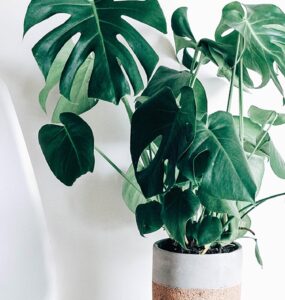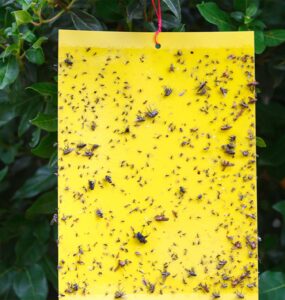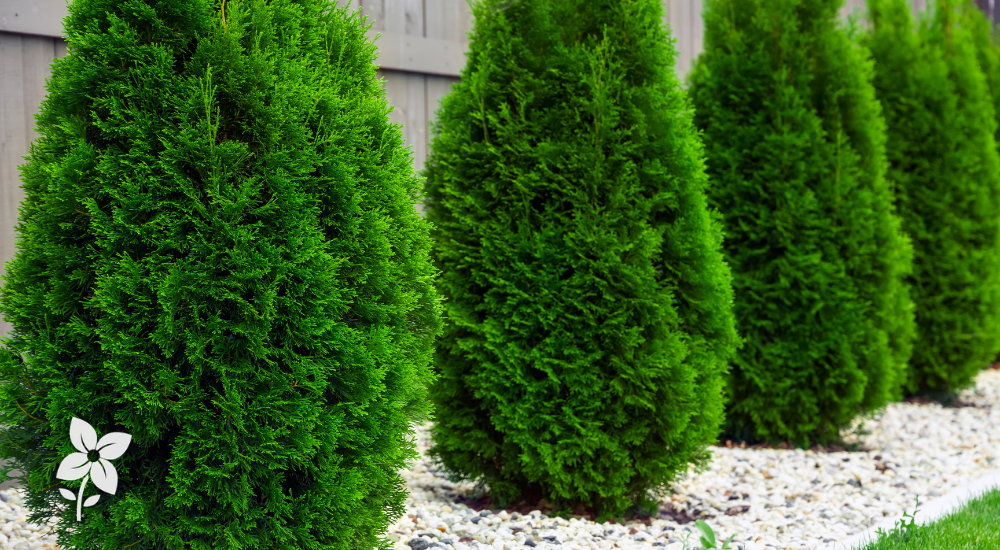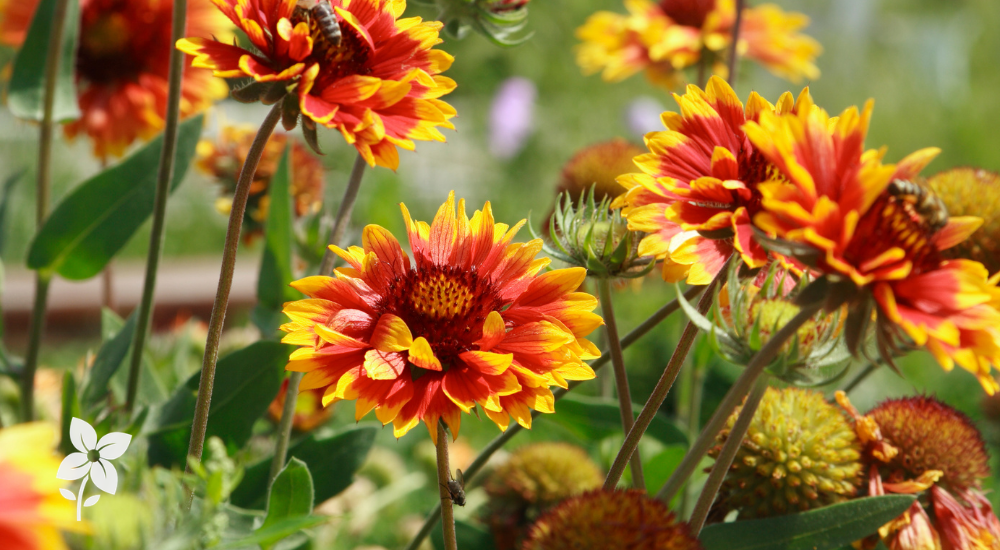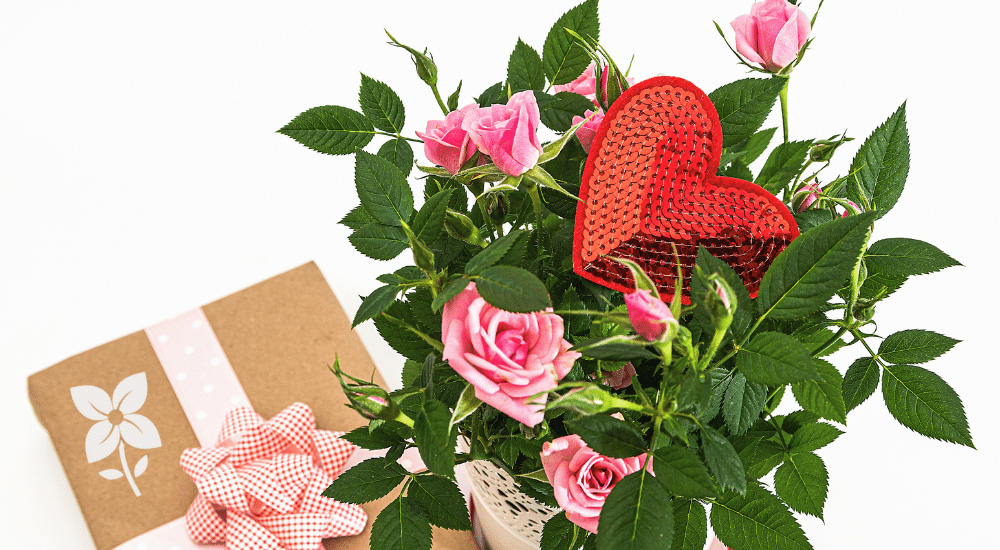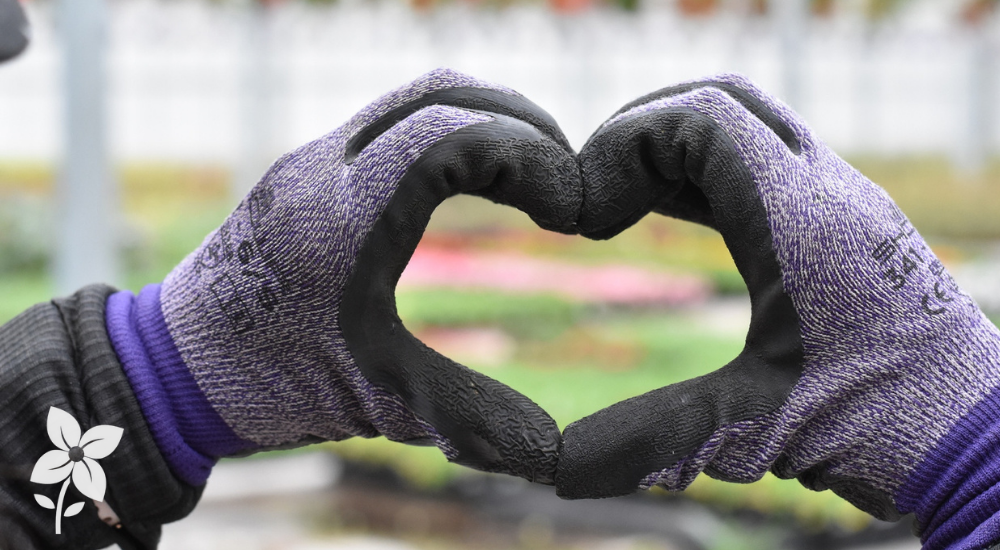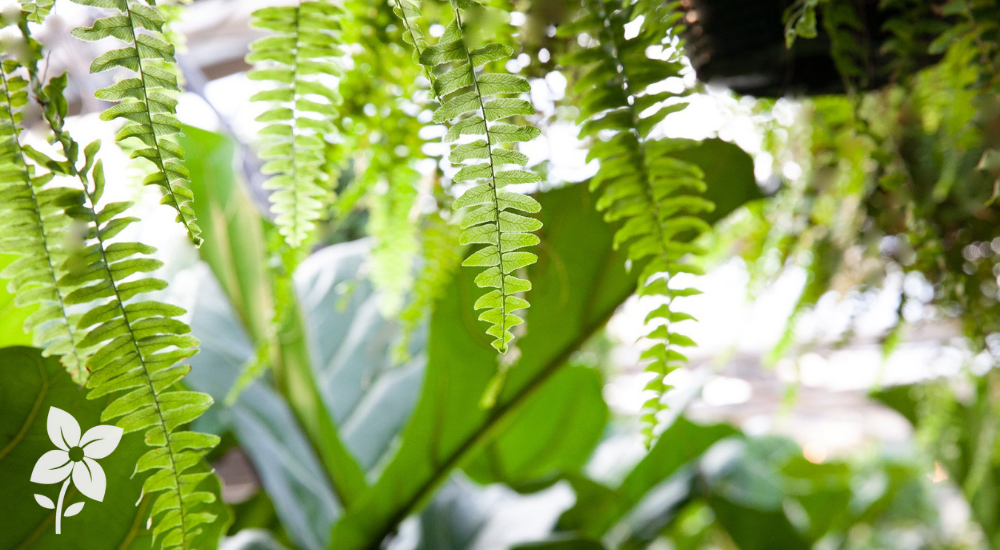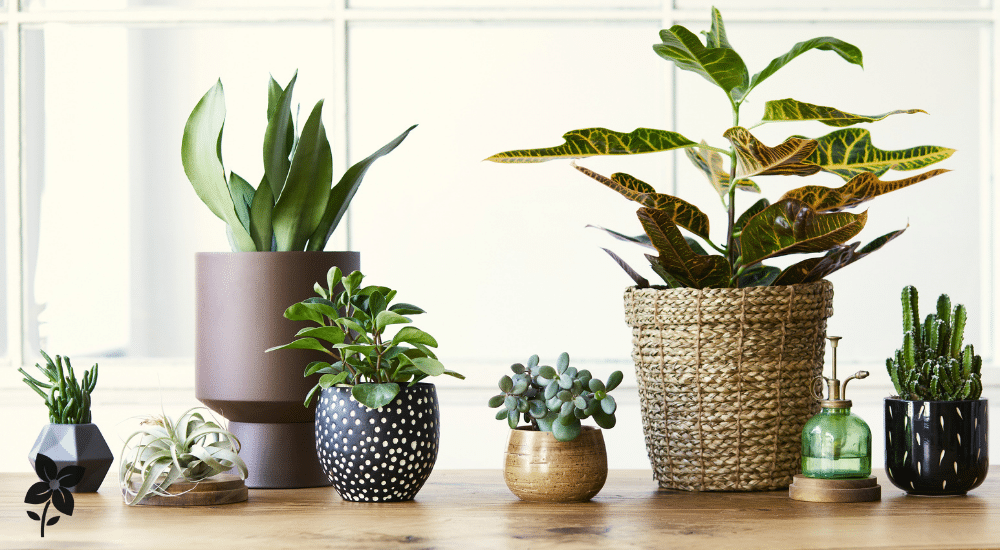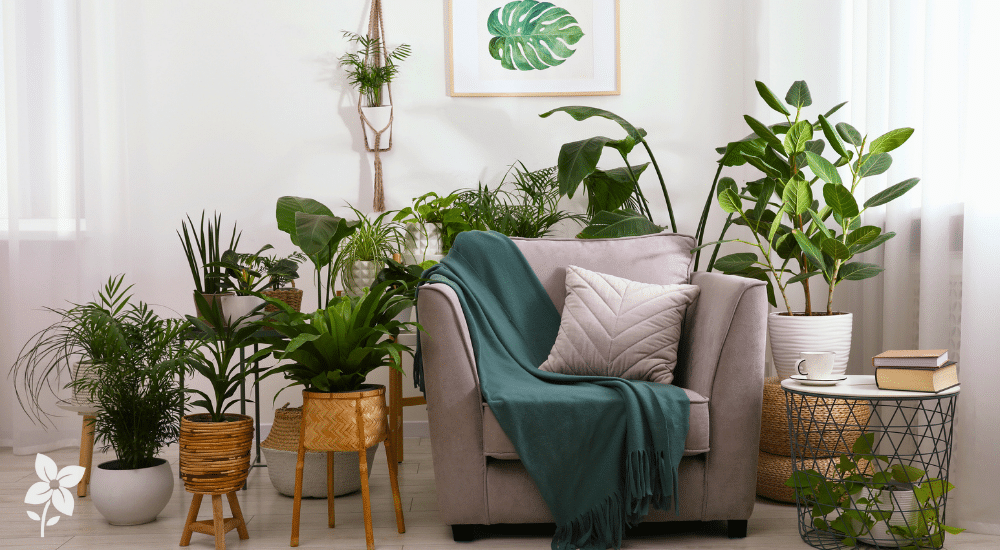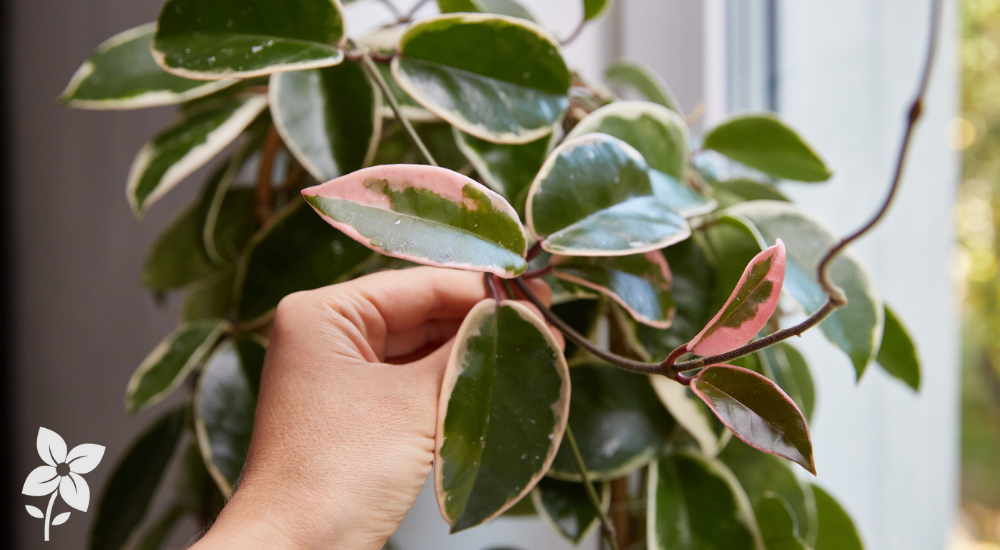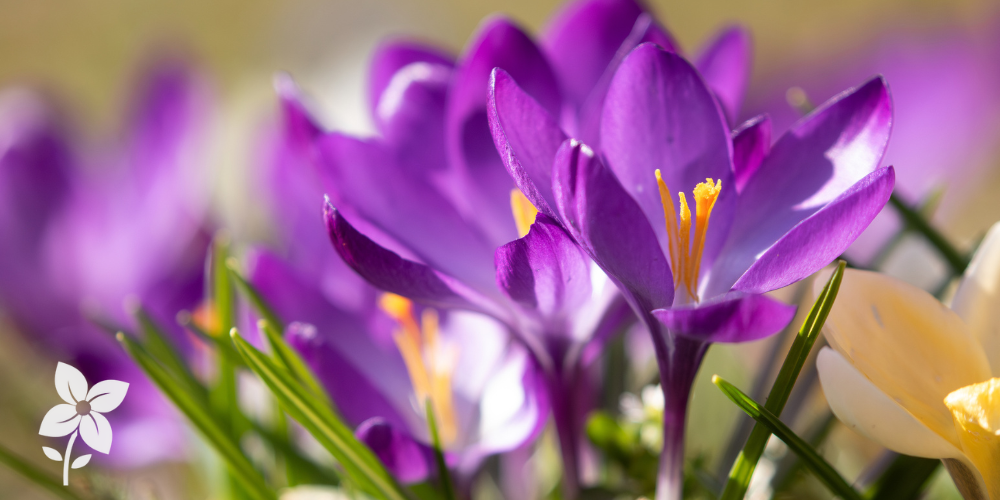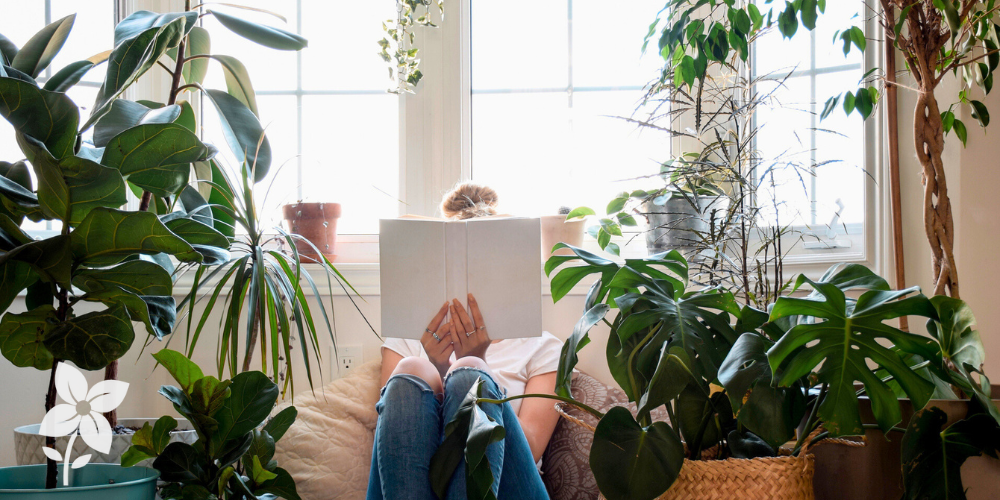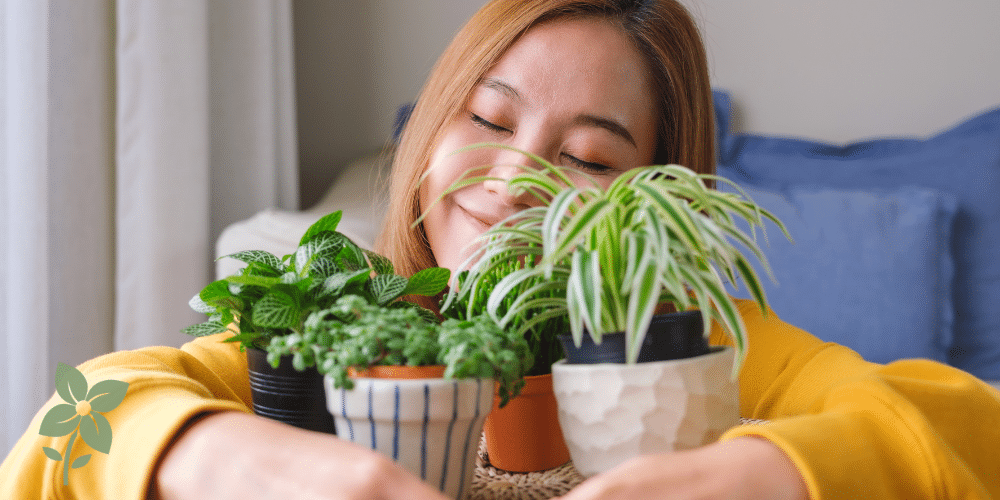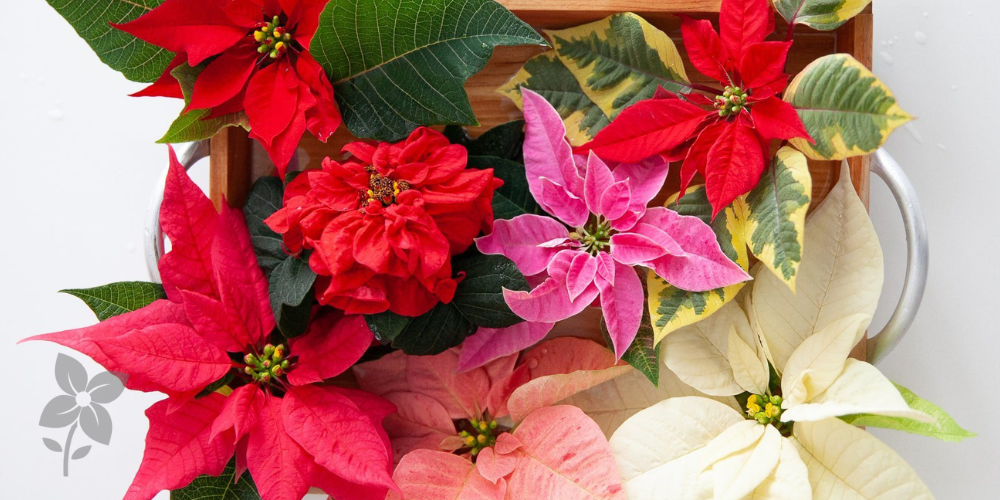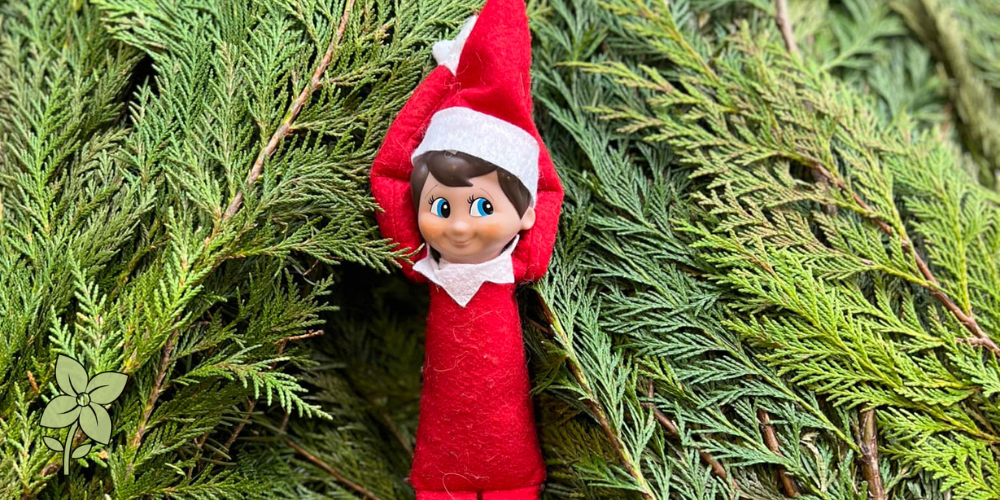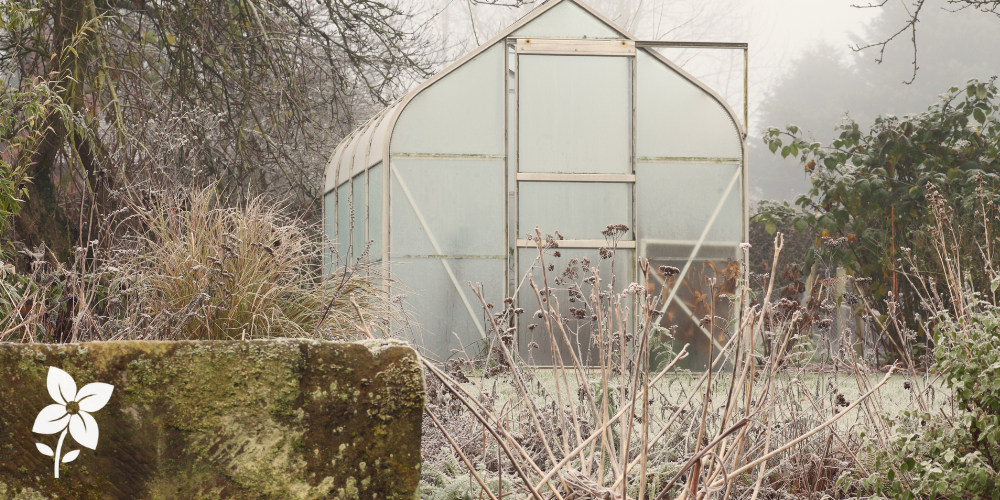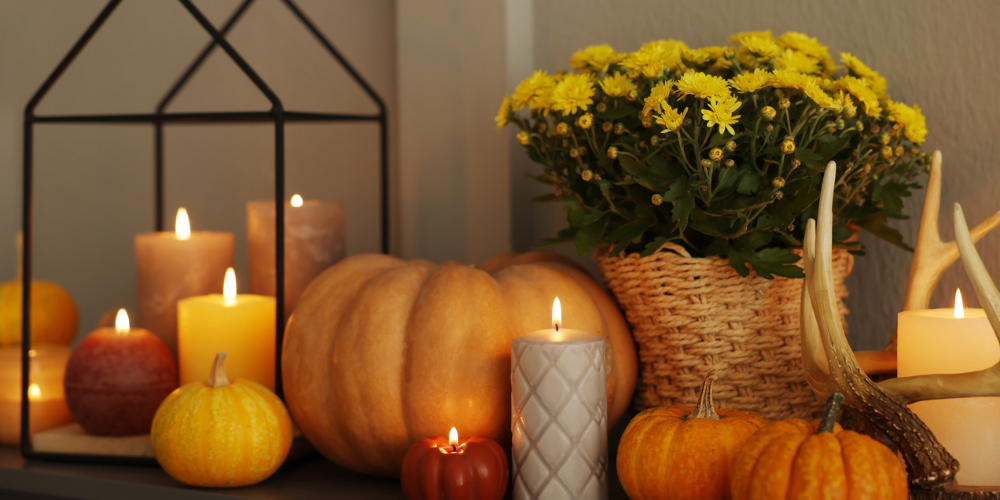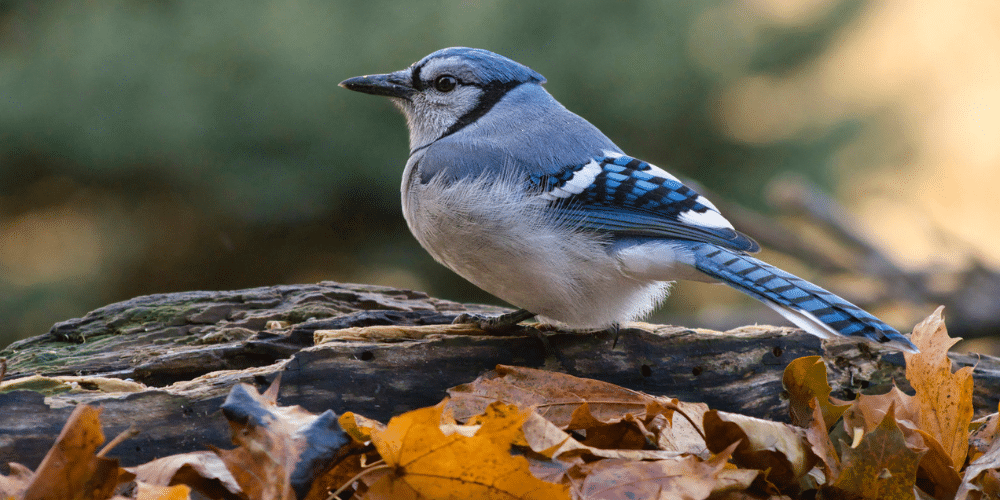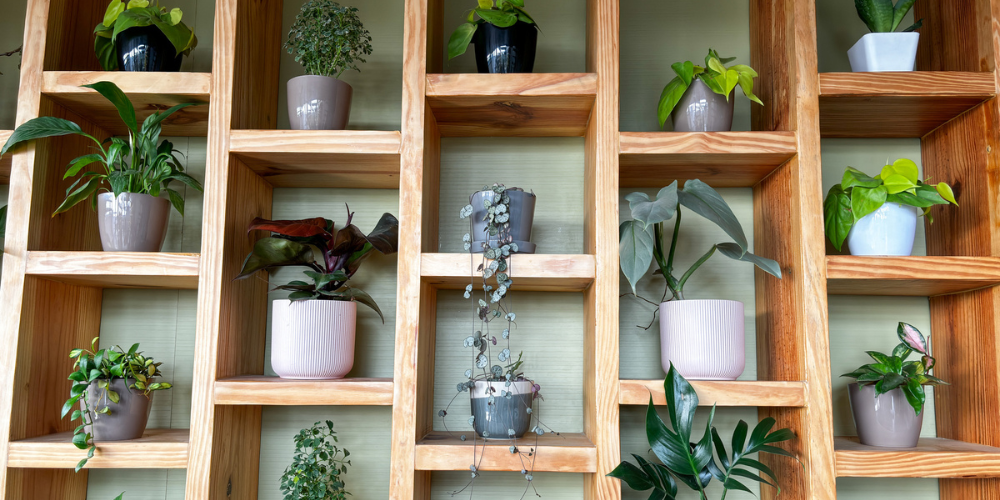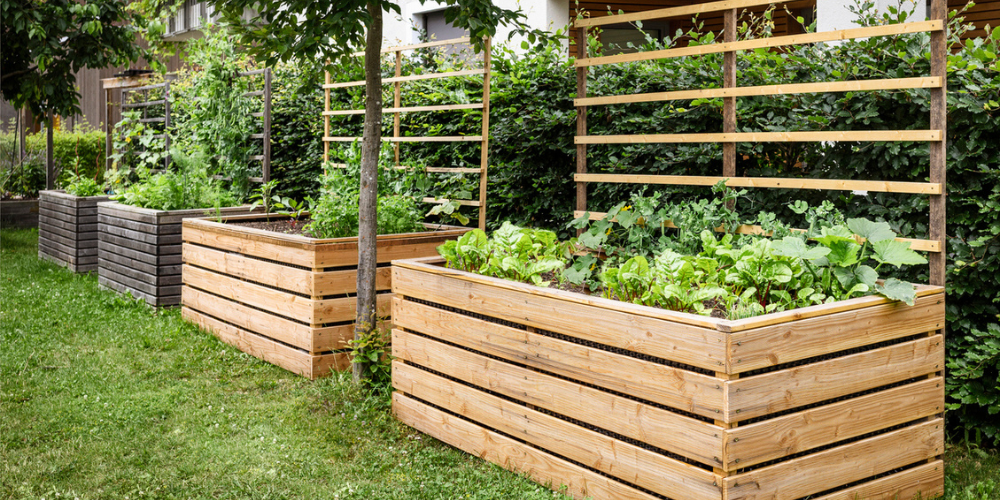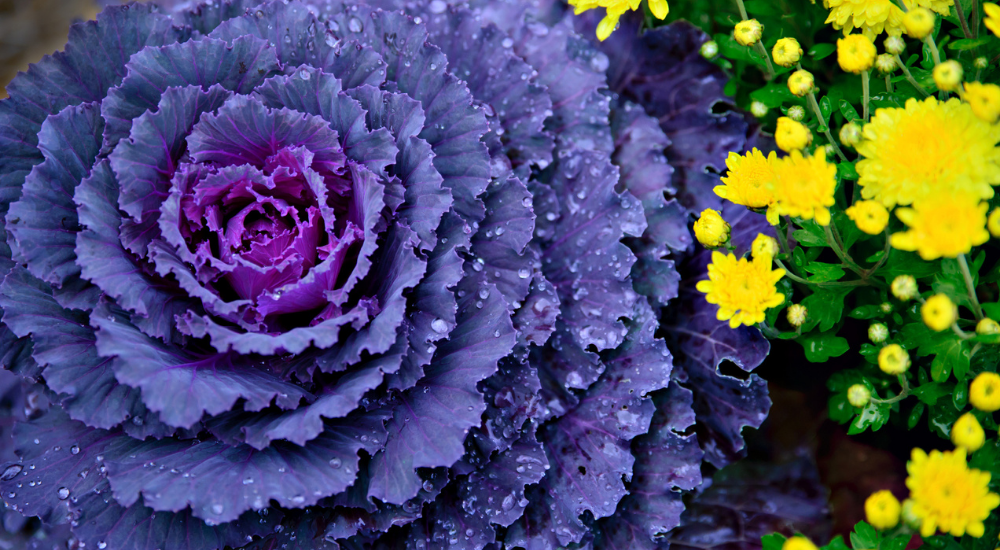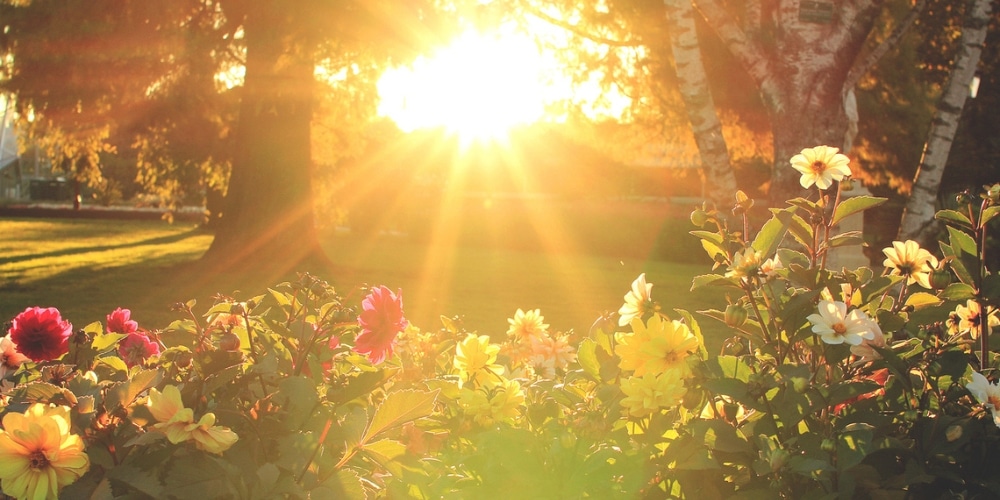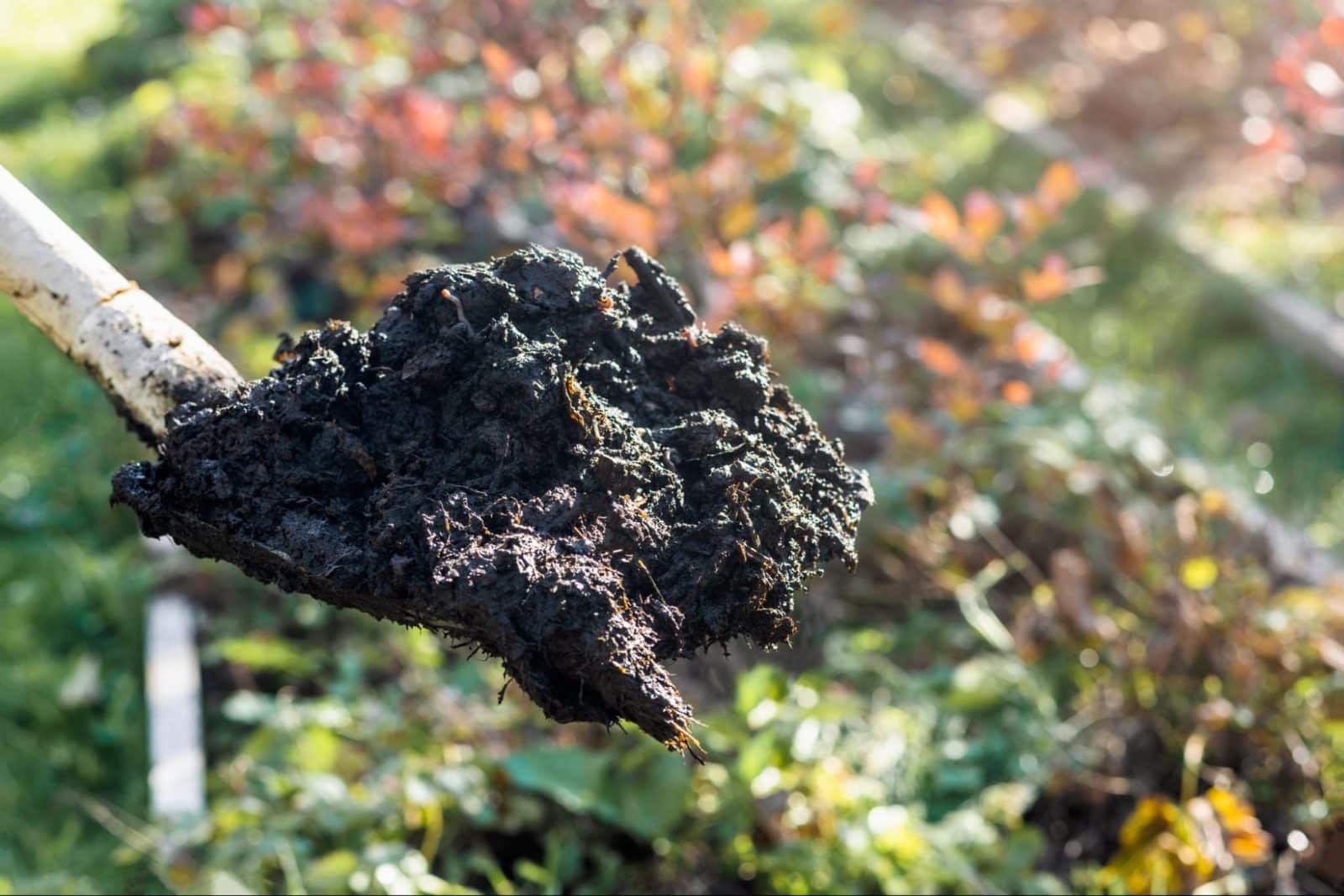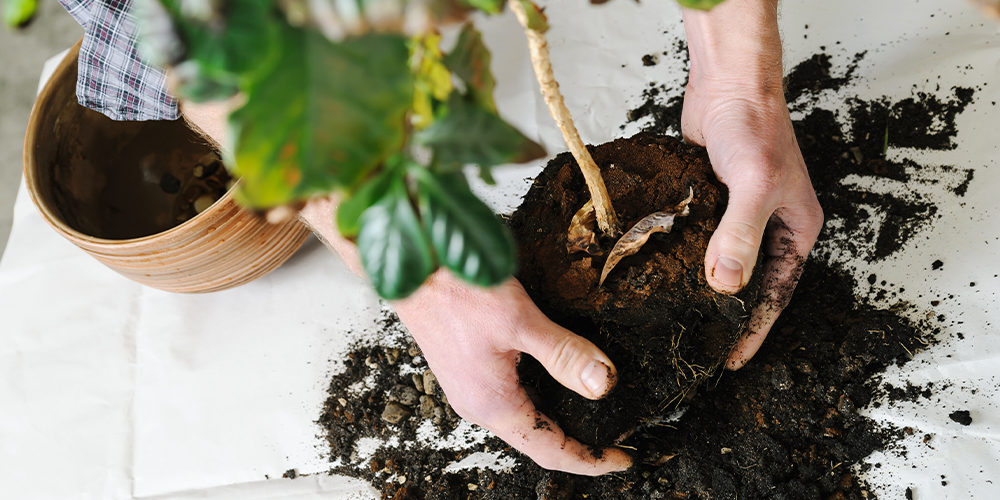
If you’re doing everything right, your houseplant will grow more and more the longer you have it. Even if you buy a houseplant that’s already artfully nestled into a chic ceramic pot, it will eventually outgrow its trendy digs. (If only plant pots appreciated in value the same way Edmonton real estate has, am I right?)
Transplanting is a normal part of plant ownership, but it’s still a delicate process. There’s definitely a wrong way to transfer your plant to a new pot, but the right way is simple and easy. Here’s how to give your houseplants a smooth transition.
Replanting Indoor Plants from Nursery Pots
If you’ve just brought home a new houseplant that’s still in a plastic nursery pot, you’re more than likely excited to get it outfitted into something a little more decorative. For a new houseplant as young as this, choose a container that’s approximately the same size as the nursery pot. The plant should be comfortable in the new container for some time before it becomes rootbound, so something similar in size should suit it perfectly.
When you’re ready to transplant, first make sure the soil in the pot is a little moist. If the soil is too dry, it may crumble out of the container as you’re transplanting and make for a messier and more stressful process. Water the soil and leave the plant for a few minutes so the soil is damp, but settled.
Prepare the new pot by filling it ¼ full with a soil mix that matches what the new plant is already growing in. Make sure your plant’s new home has drainage holes that are unobstructed so water can escape freely.
Next, turn the new houseplant on its side and slowly ease out the contents of the nursery pot, which should emerge in more or less one piece. You should be left with a pot-shaped clod of soil and roots. Slide this “root ball” into the new container. Once it’s in place, give it a little more water to help the soil settle into its new home.
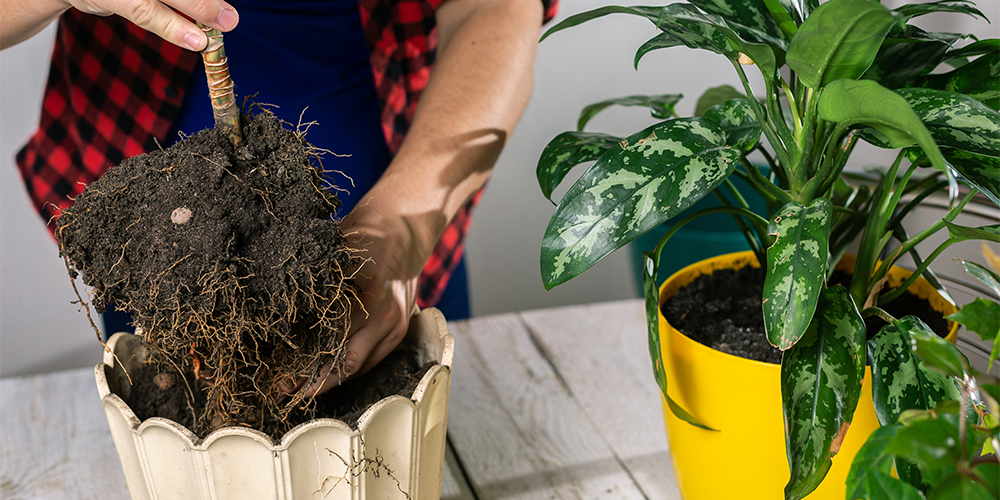
Moving Plants to Bigger Pots
Some houseplants, like rubber plant, monstera, Christmas cactus, and ZZ plants have the potential to get MUCH bigger over time. These plants will eventually become rootbound and need to be transplanted into a larger container.
When you need to transplant a houseplant into something larger, consider their speed of growth before buying a new container. Monstera, for example, grows pretty quickly under ideal conditions. Other plants, like ZZ plants, are slow-growing and take a long time to outgrow another container. For fast-growing plants, choose a pot 2-4″ larger in diameter than the current one. If the plant is slow-growing, a pot 1-2″ larger should do the trick.
The transplanting process is basically the same as it is for new plants, with a few exceptions. Fill the new container ¼ full with a matching soil mix, place the old pot on its side, ease the root ball out (with larger plants, this might be a 2-person job), and re-plant into the new container. Then, fill in the gaps around the plant with more potting soil. Top up the container with soil until it’s full to the brim, then add water to settle.
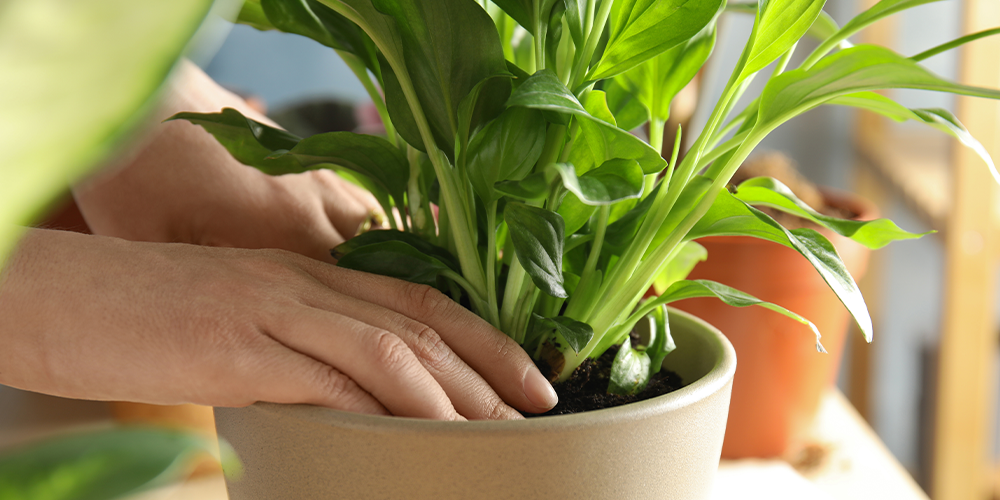
Propagating Houseplants
Propagating, also known as “cloning,” is an easy way to turn one houseplant into multiple. Wouldn’t you like to buy a houseplant once, and use it to fill your home with live greenery? I don’t know a soul in Alberta who wouldn’t.
Not all houseplants respond well to propagating, but many plants””particularly vining plants, like pothos””take to it like a dream. Here’s a popular method called “˜water propagating’.
Use a clean, sharp pair of scissors and snip off a healthy part of the plant that has plenty of foliage. Make sure you cut at a joint where the branch meets a stem. Closely snip off any foliage near the cut end. Place the cut piece into a jar of water so the freshly cut pieces are all submerged but all foliage is above the water line.
Place the whole science experiment near a window where the cut plant can enjoy some bright indirect light. Then, just leave it. The root system of the new plant will grow a little bit every day, and after a few weeks, it should look pretty cool. If the water starts looking low, or just a little funky, pour some out and add some fresh water to the jar.
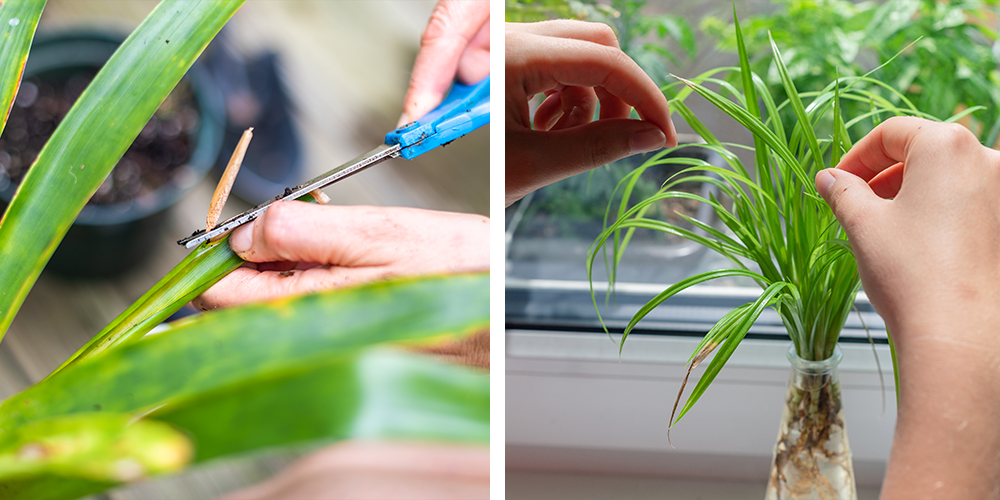
Let the roots develop in water until they’re approximately ½ inch long. This is your signal that the plant is ready to move into its own home. Fill a container ¼ full with soil, and while gently centering the new plant in the pot with one hand, use the other hand to gently scoop soil around its roots. Fill slowly and evenly on all sides, and shake the plant gently to coat the roots with soil. Finish filling the container to the top, then add some water to settle the soil.
Some houseplants don’t propagate as readily in water and may require a dip in rooting hormone, which is a powder we sell at Salisbury Greenhouse. Leafy houseplants like snake plant and non-vining plants respond well to this method””which just involves dipping a leaf or stem cutting into the powder and planting directly into the soil. If you plan to propagate a houseplant down the road, talk to someone on the team at Salisbury and we’ll let you know which method works best for your plant buddy.
We all grow into larger houses eventually, and your houseplants are no different. If you’re looking for plant pots or other houseplant supplies in Edmonton, or if your leafy pal didn’t survive your first transplanting attempt, pay us a visit. We’re no strangers to transplanting around here, and we’d be happy to correct your technique.


